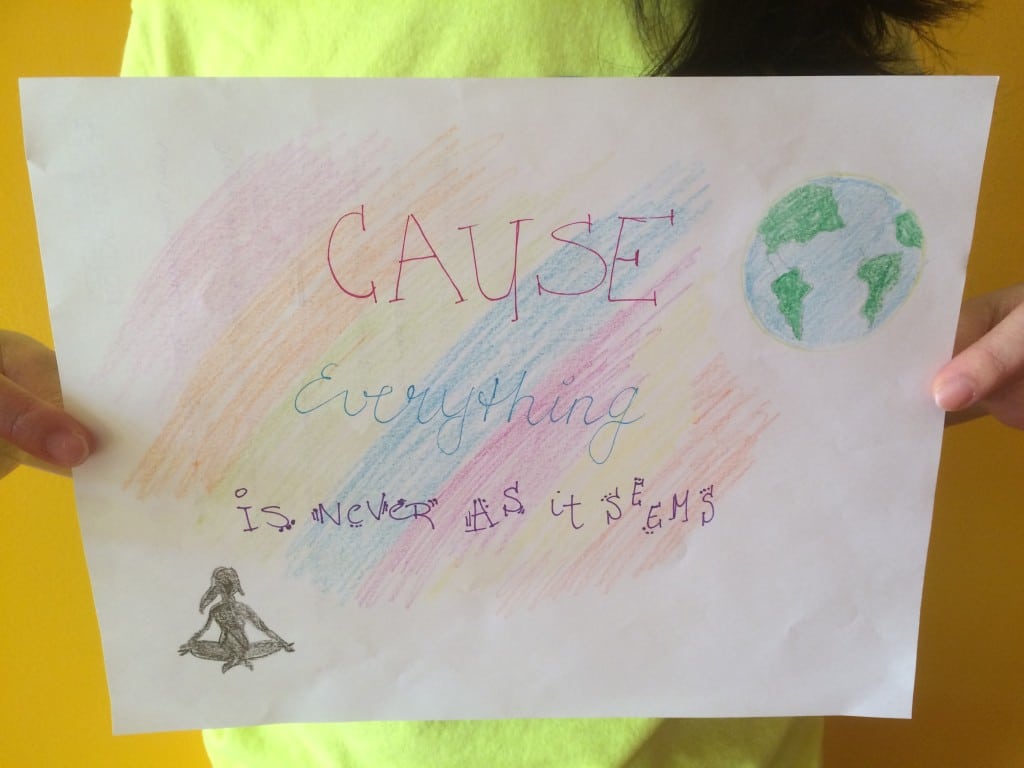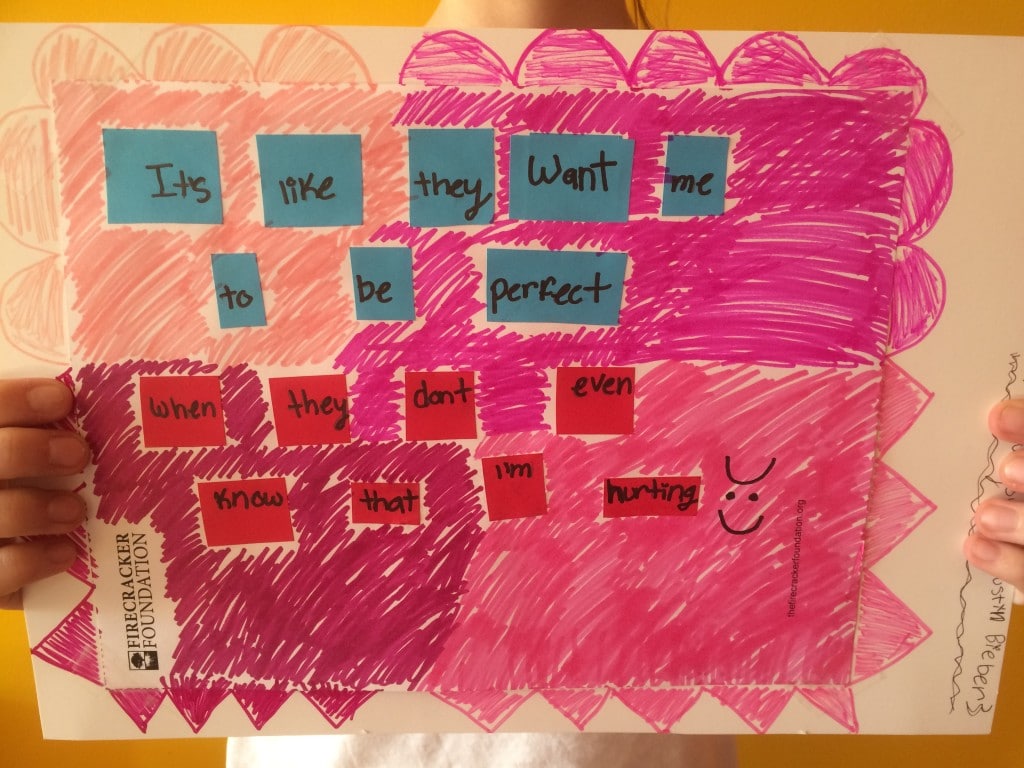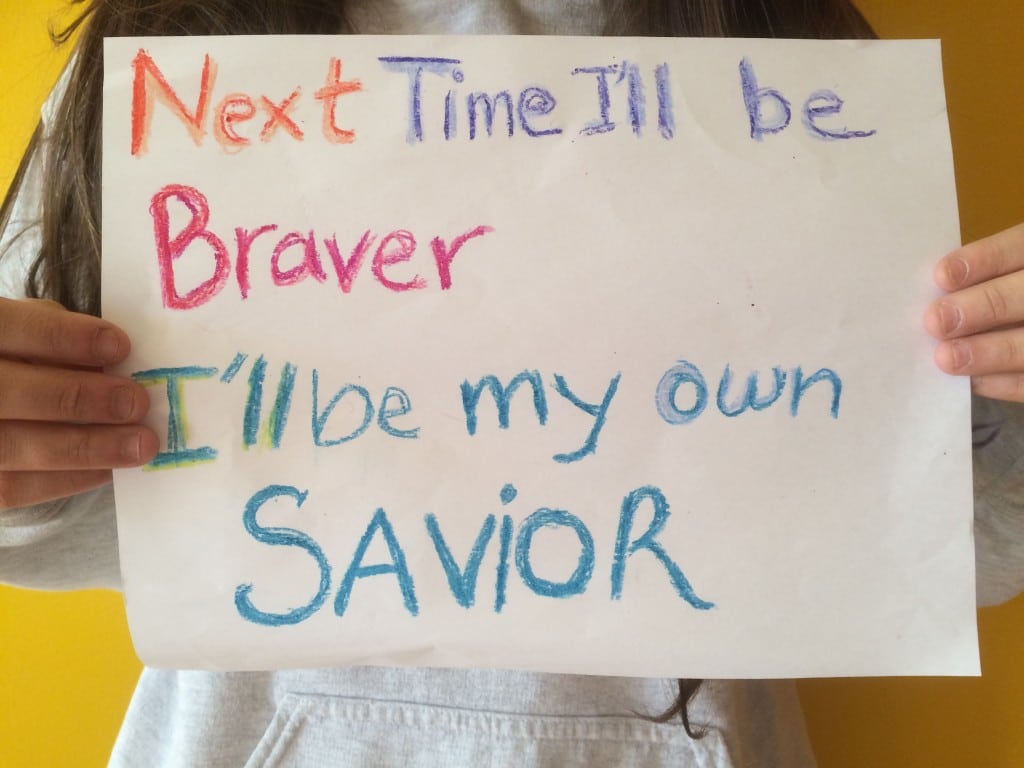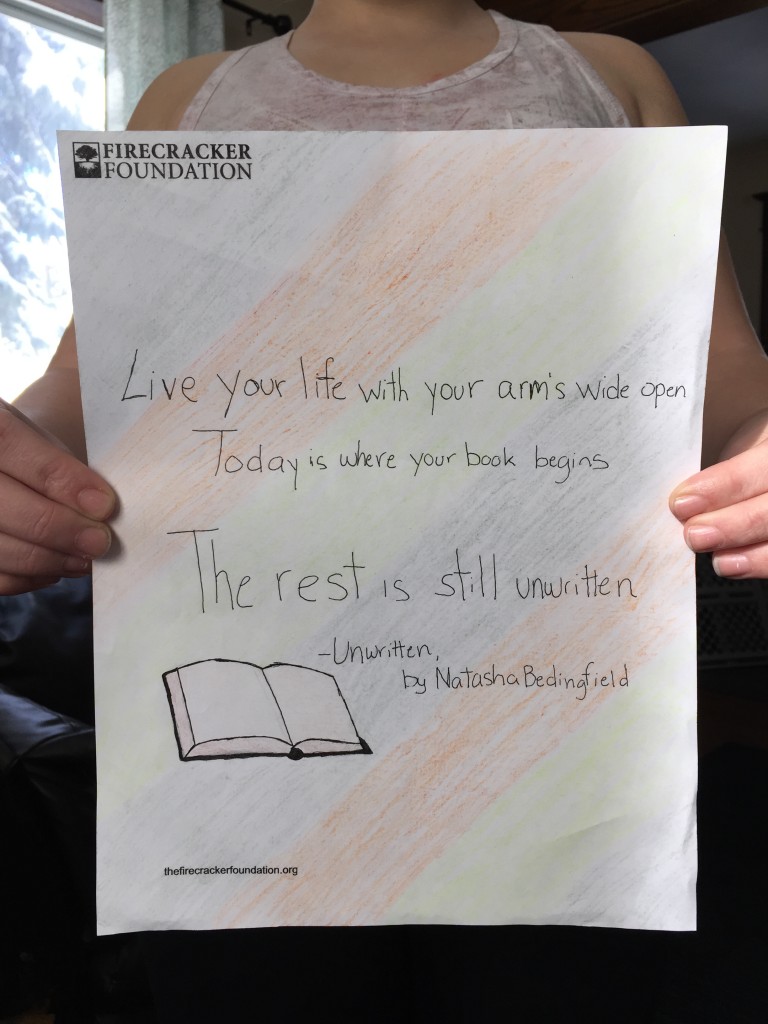It’s a modern day Breakfast Club of sorts. A gymnast. A martial artist. An honor student. A book worm. Teenage girls. Stressed about school and dating. In love with social media and music. Worried about college.
They are bonded each week knowing they’ve all suffered something horrible in a special yoga class I teach with the Firecracker Foundation. It’s usually an unspoken horror, detectable only in subtleties.
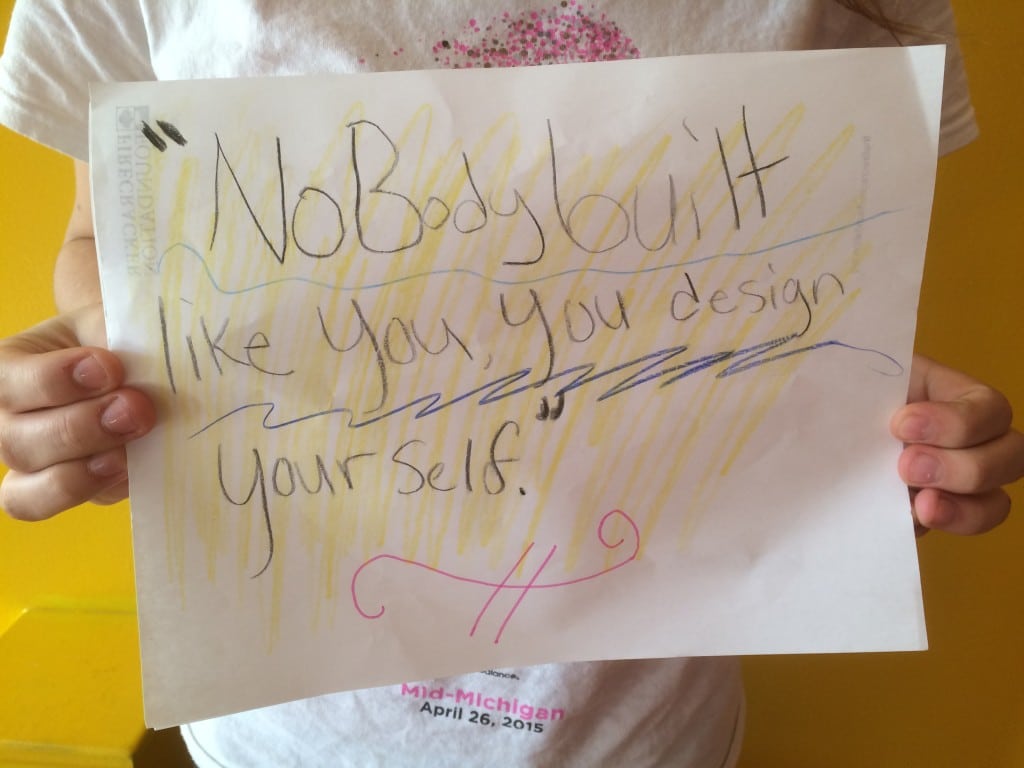
These teens are survivors of childhood sexual trauma. The experience is not something “behind them” or “in their past.”
It’s with them every day. It’s within their makeup, their reactions, how they move in their bodies and how they think about their bodies.
We use the yoga to help heal the impact that trauma has on their bodies today.
We don’t talk about what happened. That’s for another space, another kind of therapy.
Here, we feel and we observe the relationship we have with feeling sensation, emotion and memory.
A tree pose, balancing on one foot. Noticing how we feel when we wobble off balance. If the foot is tight and knotted. Do we feel there is no foundation?
And maybe we make peace with a painful sensation.
Chair pose that challenges our strength and burns our thighs. Do we stay in the pose or do we choose something more comfortable?
Maybe we forgive feeling deceived by our body’s responses.
Fish pose, that can feel tight in the chest at first but can be calming and relaxing.
Maybe we find love when we look in the mirror.
Savasana, lying still and quiet, feeling no need to adjust, fix or change anything because we are perfect as we are.
Sexual trauma robs children of a healthy sexual association. The foundation is rooted in fear or pain or guilt.
As we heal from the traumatic event inside of our own bodies, inside of our families and our relationships, we’re changing the relationship our bodies have with the only memory or experience we’ve had with sexual activity. Adults know a sexual assault is wrong and not their fault. The experience short-circuits and skews understanding and perception for children.
The physical body can respond to a memory and create a racing heart, or a desire not to eat, or even a need to feel pain.
It’s hard to trust a body that is responding to a past experience in the here and now while in a locker room, or choir rehearsal or school dance. It’s easy to feel the trauma will control our lives forever.
Each week they approach their yoga mat, rolling it out a little more comfortably. Stepping onto their mat being willing to feel weak, strong, vulnerable, scared, silly or sad.
They help each other in poses – supporting if someone wants to try something hard or scary. They help each other find forgiveness and self-love by respecting their “no.”
They enjoy the silence near the end of class.
And week by week they step into themselves in a different way.
Maybe in twists and forward folds and finding they can breathe in cramped spaces.
Maybe in holding difficult poses that challenge their inner strength they see a power that’s always been there. And possibly they can let go of that tight hold on themselves, in order to find who they are apart from the trauma and not let the trauma drive them.
They don’t emerge from the class forgetting about what happened to them. But they do emerge with tools to help them live today and not let the sensations and emotions of the memory dictate their tomorrow.
Transformation doesn’t happen in a magical instant. It’s in stages that can appear to be stasis, like a caterpillar in a chrysalis, the butterfly slowly emerges.
(Photos are quotes chosen by students in the Rising Phoenix yoga class.)
